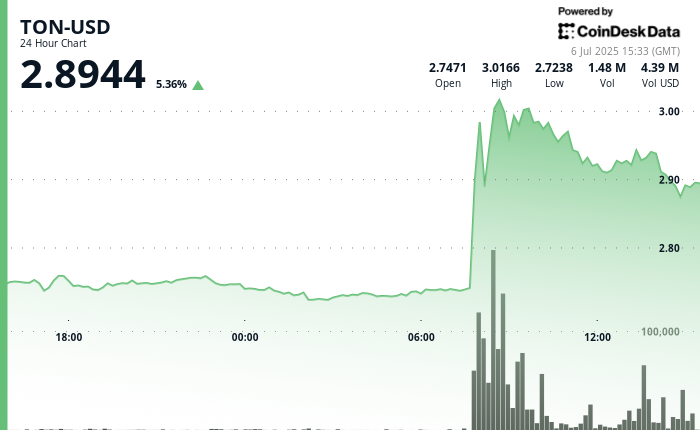Unlocking UAE Residency: The TON Foundation’s Golden Visa Initiative for Toncoin Holders
On July 6, 2023, the cryptocurrency community was abuzz with excitement after Max Crown, CEO of the TON Foundation, announced a revolutionary program that could change the landscape of residency applications for crypto holders. The initiative offers toncoin holders an opportunity to secure a 10-year UAE Golden Visa by staking $100,000 worth of toncoin for three years, along with a one-time processing fee of $35,000. This initiative not only aims to simplify the residency process but also capitalizes on the growing influence of cryptocurrencies.
An Overview of the TON Golden Visa Program
The newly launched program by the TON Foundation targets crypto enthusiasts seeking residency in the UAE, a country that has positioned itself as a global hub for cryptocurrencies and Web3 technologies. To be eligible, applicants must stake a minimum of $100,000 worth of toncoin for a lock-up period of three years. However, the participants can unwind their staked funds after this period. Throughout the staking duration, it is reported that holders can earn an estimated 3-4% annual percentage yield (APY) on their investments, making this a lucrative offer. Besides, applicants can include family members such as spouses, children, and parents without incurring additional charges, apart from the usual government fees.
Benefits Over Traditional Visa Routes
Unlike traditional UAE residency options, which often require substantial investments in real estate or fixed deposits—typically around $540,000—the TON Golden Visa offers a more cost-effective solution. This initiative promises a fast approval timeline, reportedly within seven weeks from the time documents are submitted. Moreover, the process does not necessitate the slow-moving bureaucracy associated with real estate transactions, making it a timely alternative for those wanting to relocate.
Market Impact and Toncoin Performance
The announcement had a notable impact on toncoin’s market performance. Shortly after the news broke, toncoin’s price surged by 12%, climbing to approximately $2.89 per token. This quick momentum indicates heightened interest and optimism from investors, as evidenced by the trading volume—recording about 251.54% higher than its 30-day average. This spike reflects not just a market reaction but also a burgeoning interest in the potential of the TON Foundation’s innovation in the cryptocurrency sector.
Community Reactions: A Mixed Bag
While the initiative has garnered praise from some quarters of the crypto community, it has also drawn skepticism. Bobby Ong, co-founder of CoinGecko, described the initiative as an "amazing story" that could attract significant investment interest, expressing hope it won’t turn out to be a short-lived scheme. On the other hand, critics like investment partner Joe HedgedHog noted that the program is not sanctioned by the UAE government but rather facilitated by a legal firm using TON as a conduit. Others, like the Head of Strategy at Gearbox Protocol, voiced concern about possible misleading information surrounding the program, emphasizing that the actual approval lies with the UAE authorities.
Regulatory and Approval Concerns
It’s crucial to highlight the regulatory landscape surrounding the UAE entrepreneur visa category that this program aims to target. Applicants must present necessary documentation confirming their business project’s value, innovation, and other credentials to local authorities—factors that may not be straightforward depending on the investor’s situation. As noted by Changpeng Zhao, former CEO of Binance, the initiative would generally require a verified partnership with the UAE government to gain full credibility, which remains unconfirmed at this stage.
Conclusion: A New Era or a Passing Trend?
The TON Foundation’s initiative to facilitate a 10-year UAE Golden Visa for toncoin holders represents a significant intersection between cryptocurrency and traditional residency processes. For those who can navigate the complexities and meet the requirements, the offering might serve as an innovative gateway to residency in a rapidly evolving technological landscape. Nevertheless, as skepticism surrounds the scheme’s long-term viability and legitimacy, potential applicants are urged to proceed with caution, ensuring they remain well-informed about the evolving regulatory environment in the UAE. Whether this initiative marks the beginning of a new trend in residency applications or fades into obscurity will depend largely on the responses from both investors and regulators in the weeks and months ahead.


